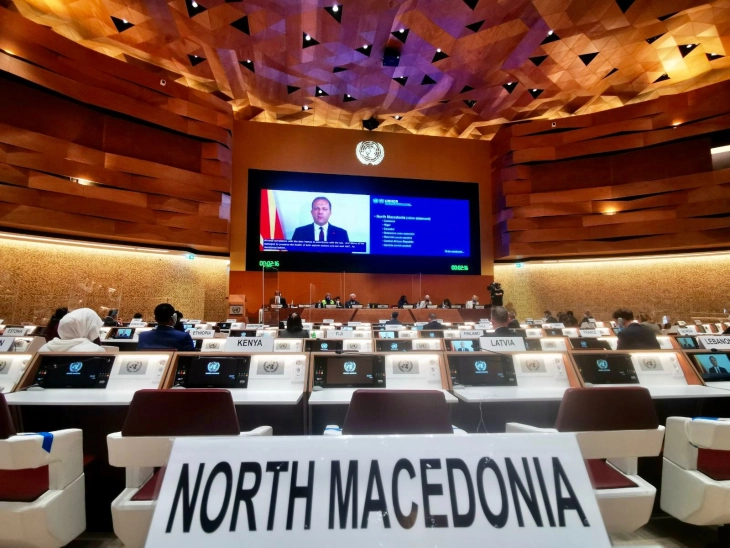Managing migration remains one of Interior Ministry's priorities, Spasovski says
- Post By Magdalena Reed
- 16:50, 4 October, 2021

Skopje, 4 October 2021 (MIA) — North Macedonia remains a transit country for people seeking asylum in Western Europe, and the Interior Ministry's priorities are early detection and prevention of illegal crossings and movements along the Balkan route, strengthening border security and reducing risks to life and health, Interior Minister Oliver Spasovski told UNHCR’s annual Executive Committee on Monday.
According to Minister Spasovski, the background of asylum seekers has changed over the years. “In the last two or three years,” he said, “asylum is sought mostly by people from Afghanistan, Pakistan, Syria. They are mostly adult men but there is also a large number of male minors, while the number of families and mothers with children has significantly decreased.”
The pandemic has not diminished cooperation with other countries along the Western Balkans route and with European agencies, Spasovski said, noting that the exchange of information, meetings and training continued without problems.
The security situation at the state borders, according to the interior minister, is generally favorable. The main challenges he said were “illegal crossings, smuggling of migrants, and secondary movements of migrants,” but there were no serious threats to public order, peace, and health.
Since 2015, the police have implemented on the southern border an operation involving foreign police officers from eight European countries, seven of which are EU members, he pointed out.
The EU Pact on Migration and Asylum, according to Spasovski, was a document ensuring effective control of the EU's external borders, meaning greater border security for the entire region.
“The countries of the Western Balkans are mentioned in the part where adapting the approach is needed, because of their geographical location, but also because of their future – in which they should be an integral part of the EU,” he noted.
Mutual coordination can help ensure the best possible equipment and the EU Asylum Agency could work on capacity building and operational support for third countries, Spasovski said, recalling that North Macedonia, as a NATO member, has shown solidarity and sheltered around 800 civilians from Afghanistan who had worked for peace in that country over the past 20 years.
“All these years, the Republic of North Macedonia has been an active partner of the United Nations, and especially of the Office of the High Commissioner for Refugees,” he said, adding that the country remains a committed and responsible partner that can be counted on. mr/







